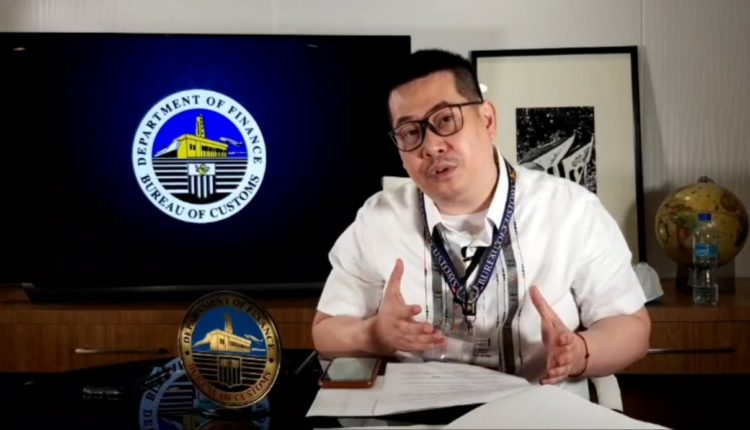PCAG adds P287 million to BOC coffer
Fuel field testing to start on April 26, 2021
THE Post Clearance Audit Group of the Bureau of Customs (PCAG-BOC) further increased its contribution to the government’s tax collection effort, generating more than P287 million for the first quarter of the year.
PCAG assistant commissioner and concurrent BOC spokesman, Atty. Vincent ‘Jett’ Maronilla, in a report to Comm. Rey Leonardo Guerrero, said the amount was a result of his group’s “intensified post clearance audit efforts.”
The amount is also higher by about P40 million from the P247.37 million in additional duties and taxes PCAG collected during the first two months of 2021, records show.
The PCAG said the additional revenue was collected from 51 Prior Disclosure Program (PDP) applications, accounting for P258,363,867.77 of the revenue collected.
Another P28,672,832.25 was also collected from the demand letters PCAG issued after the conduct of post clearance audit.
Maronilla added that 13 applications for PDP were also approved during the period, while 4 were denied as the audit is still continuing on the concerned importers.
Maronilla said he remains “optimistic” that more additional revenues can be collected by PCAG for the remainder of 2021 with the issuance of 57 new ‘Audit Notice Letters’ (ANLs).
The official added that a collection suit involving 13 final demand letters issued to importers and involving more than P7.146 billion is now being prepared by the bureau’s Legal Service.
‘FMP’ field testing to start on April 26
In a separate report to Guerrero, Deputy Commissioner for Enforcement (DCE) Atty. Teddy Raval, in charge of the government’s ‘fuel marking program’ (FMP), said field testing enforcement activities is scheduled to begin this coming April 26, 2021
The field inspection is to be conducted with the Bureau of Internal Revenue and would cover gasoline, diesel, and kerosene stored in warehouses, storage tanks, gas stations, retail outlets “and in such other properties not containing the required fuel marker level.”

Vessels, tank trucks, and similar fuel transporting vehicles will also be covered by the enforcement activities, Raval added.
Under the Tax Reform for Acceleration and Inclusion Act (TRAIN), petroleum products found without the ‘official fuel marker’ or, not containing the required level of the official fuel marker, are subject to payment of duties and taxes, as well as appropriate fines and penalties.
The payment of penalties is without prejudice to the confiscation and forfeiture of any unmarked or diluted fuel and the filing of the appropriate criminal case, Raval explained further.
The field-testing process shall be done using ‘mobile laboratory units’ equipped with analyzers capable of detecting the official fuel marker’s presence in any fuel sample.
The test result shall be generated on-site and would indicate a pass or fail result.
Products with failed results will be subjected to confirmatory testing in a fuel testing facility, to be witnessed by the fuel owner or his representative for the purpose of transparency.
Raval told Pinoy Exposé that “transitory field testing” was actually started last February 2021, involving sample fuels from retail stations and tank trucks in the National Capital Region and nearby provinces.
The FMP is a government project that seeks to collect more revenues for the government while curbing the smuggling of oil products.
Since its implementation in September 2019 and up to the end of 2020, more than P17.55 billion liters of fuel were covered by the program, generating an additional duties and taxes in the amount of more than P171.72 billion.



